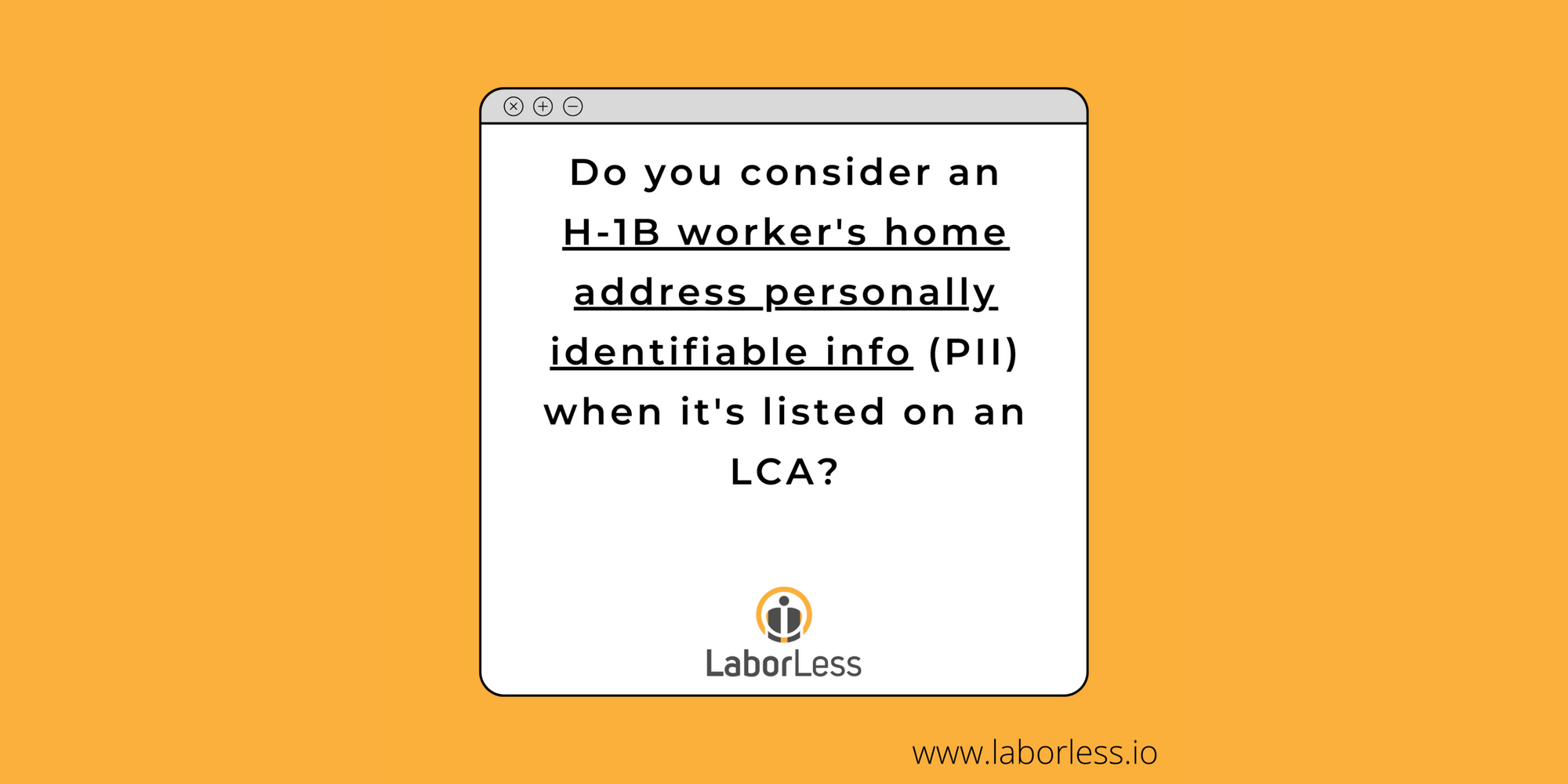I recently had a call with a LaborLess prospect and a very specific question came up about whether a remote H-1B worker’s home address, which is listed on their Labor Condition Application (LCA), is personally identifiable information (PII).
My instinct was to say "no" since LCAs are inherently public, and publicly available, and so any information on an LCA should be public. On the other hand, someone's literal home address is quite literally some of the most personally identifiable information out there. So what's the answer?
I decided to explore the definition of PII and and ponder both sides.
First, here's how the US Department of Homeland Security defines PII
According to DHS, PII is defined as:
any information that permits the identity of an individual to be directly or indirectly inferred, including any information that is linked or linkable to that individual, regardless of whether the individual is a U.S. citizen, lawful permanent resident, visitor to the U.S., or employee or contractor to the Department.
In short, to me, this definition says that any information that can link back to an individual, is, in a way, PII.
But what if that information is being shared in an inherently public way? I.e., what if a remote or hybrid H-1B worker's home address is considered a place of employment and is thus listed on their LCA?
Is an H-1B worker's home address considered a "Place of Employment"?
When an immigration lawyer is filling out an LCA (Form 9035) for submission to DOL, it's necessary to list where the underlying individual will be working, or their “Place of Employment." Well, for H-1B workers who will be working remotely from home, even if part of the time, their home address, from the DOL's perspective, should be considered a place of employment and thus should be listed on the LCA.
Take that together with the fact that LCA data is inherently public, both (1) because it is, per DOL's own regulatory language, eligible to be searched through by anyone, whether an employee, a government officer, or a concerned citizen off the street, and (2) because recent LCA data is available to the public and searchable via DOL's own website, an argument can be made that a remote H-1B worker's home address may be considered public data.
So, is an H-1B worker's home address listed on the LCA PII or public data?
On the one hand, a home address, especially if they live in a house (since if they live in a building, you can arguably leave out the apartment and add a layer of privacy), may be linked back to an individual person. From that standpoint, therefore, a home address can be considered PII.
On the other hand, if a remote H-1B worker's address is to be considered a "Place of Employment" and included in the LCA, it can be reasonably considered public data, both because DOL publishes some of it on their website and because anyone can request a public access file, which would have the accompanying LCA in it and thus include any home addresses listed as worksites thereon.
At the end of the day, what matters most is that your LCA posting process is compliant.
This article, in a sense, was written to make you think. There may not be a final answer to this question, but if there is, does it really matter?
At the end of the day, the most important aspect of the LCA process is that the H-1B employer, with the help of their immigration law firm, is in compliance with DOL's regulations. Posting LCA notices correctly and in a way that notifies affected workers and protects the US workforce is paramount. And doing so electronically is the best way to do that.
If you think LaborLess can help automate your LCA compliance process, check out our demo and please reach out to learn more!

